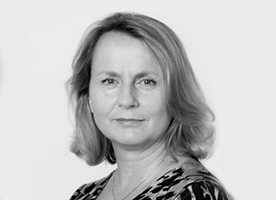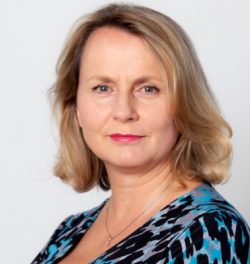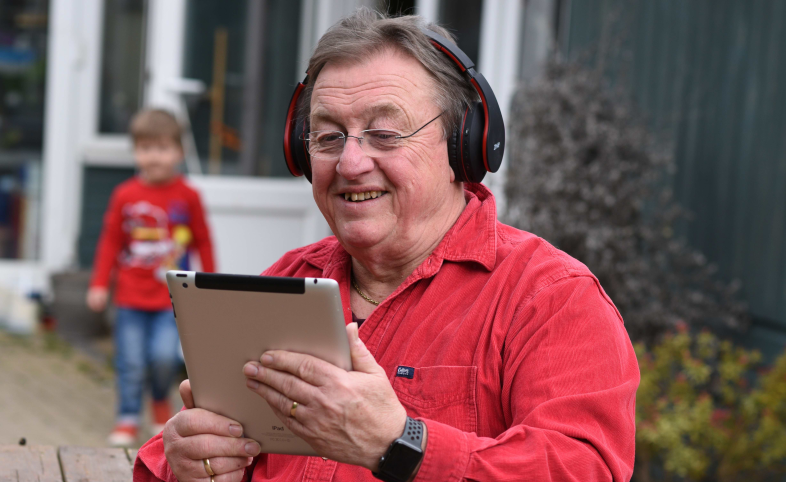The role of Health Innovation East in driving improvement in health and care
I am thrilled to take on the role of Chair of the Board at Health Innovation East, having been a non-executive director at Health Innovation East for the last two years. This is an exciting time to be enabling the adoption of innovation in health and care and build on the momentum from the pandemic. Until last year I was also an NHS chief executive, which has given me insight into the impacts and challenges the healthcare system faces but also the potential for the AHSNs to continue to be an important partner in meeting these challenges.
Health Innovation East has redefined its strategic priorities in line with the changing healthcare landscape and based on feedback from our partners within our community.
A focus on evidence-based outcomes
Historically, embedding healthcare innovation takes time due to conflicting priorities or a lack of resources as well as varied appetites for change and attitudes to risk. Throughout the pandemic we’ve shown that embedding new practice and solutions can be done quickly. As we continue to face the challenges arising from COVID-19, we need to capitalise on what we’ve learned about innovation and adoption. This means working out which solutions introduced at speed during the pandemic were most effective, which are no longer needed and which could be integrated into business as usual within our healthcare systems.
At Health Innovation East our activities are driven by the available evidence and the need expressed by our communities. We seek to support innovations which have a positive outcome on people’s lives – working hours saved, early diagnosis of chronic diseases, adverse events mitigated or avoided and economic benefits. We constantly seek to evaluate and continuously improve. This is an area that has interested me throughout my career and I am keen to support Health Innovation East to apply learnings in partnership with the NHS.
Transforming systems
Integrated care is about giving people the support they need, joined up across local councils, the NHS and other partners including the third sector. As integrated care systems become more established Health Innovation East has an important role in supporting our local systems to transform and embrace innovation by removing barriers, sharing learnings and championing an innovation culture. Building this culture begins with understanding that we might introduce innovative things and products but actually it’s people who deliver health care. It’s also people who receive health care. Understanding those human dynamics of change and how you bring people with you on that change journey is really important.
I think success for me as Chair of Health Innovation East over the coming years would be that our partners in our integrated care systems see us as the go-to organisation to support improvement through innovation and we have had a positive impact on their populations.
Reducing health inequalities
When we talk about our impact on our population, I mean everyone. We want to do more to understand how innovative new practices and technologies affect people differently.
Health disparities in our region are stark and can undermine people’s ability to work and live long, healthy, independent lives while creating pressure on the NHS, social care and other public services. This has been worsened by the pandemic and we remain committed to working with our citizens and partners, including ICSs and the NIHR ARC, to find innovations that meet diverse needs and reach those in our region most in need to reduce inequalities.
We’ve struggled to address health inequalities for all of the decades that I’ve worked within the NHS but I don’t think the issue has ever had the prominence and the profile that it does now. I think it’s clear to everybody that if we carry on delivering health and care services in the way that we have been doing over the last 10-15 years, we will continue to have problems with inequitable care and outcomes for the diversity of the populations that we serve. To achieve change, first we need to understand the needs of diverse groups and work in partnership with them to make innovations available to them that will have a positive impact on their lives.
Building on the platform we have built
Health Innovation East is now nine years old and it’s a really exciting time to join the organisation. We have grown and delivered so much impact already through collaboration across the region and beyond and have so much more to come. The East of England is home to some of the greatest science and innovation and the most brilliant health and care practitioners in the world.
At Health Innovation East, we work across organisational boundaries, bringing together partners from industry, from the NHS and local authorities, patients and citizens. We have staff with expertise in adoption of innovation, in data management, in change processes and in evaluation. We also have expertise in public and patient engagement so together our teams can support partners to develop and adopt new ways of working, new technologies and to gain new insights into what works best.
I am really excited to lead the Board of Health Innovation East so that the whole of the East of England population can benefit from adoption of innovation and learning through effective collaboration across healthcare, academia, and industry with citizens in the east of England. Realising this ambition requires the Board to be really focused on what innovations are on the horizon and ensuring we’re really comfortable using evidence and data, including insights from citizens and patients so that we make the right choices about what we support and how we roll out innovation.
If you want to learn more about our work or how we can collaborate to help our partners, get in touch.
About me…

Tracy has extensive experience in healthcare leadership in the region, including sixteen years in roles at boardroom level. Before taking up the role of Chair, Tracy served as a non-executive director at Health Innovation East for the two years.
Tracy left her role as Chief Executive of Cambridgeshire and Peterborough NHS Foundation Trust in 2021 after a 38-year NHS career, in which she started as a radiographer before she moved into operations and management. As well as her qualifications in radiography, she holds an MBA and a management qualification from the Institute for Health Service Management.
You might also like…
Share your idea
Do you have a great idea that could deliver meaningful change in the real world?
Get involved

